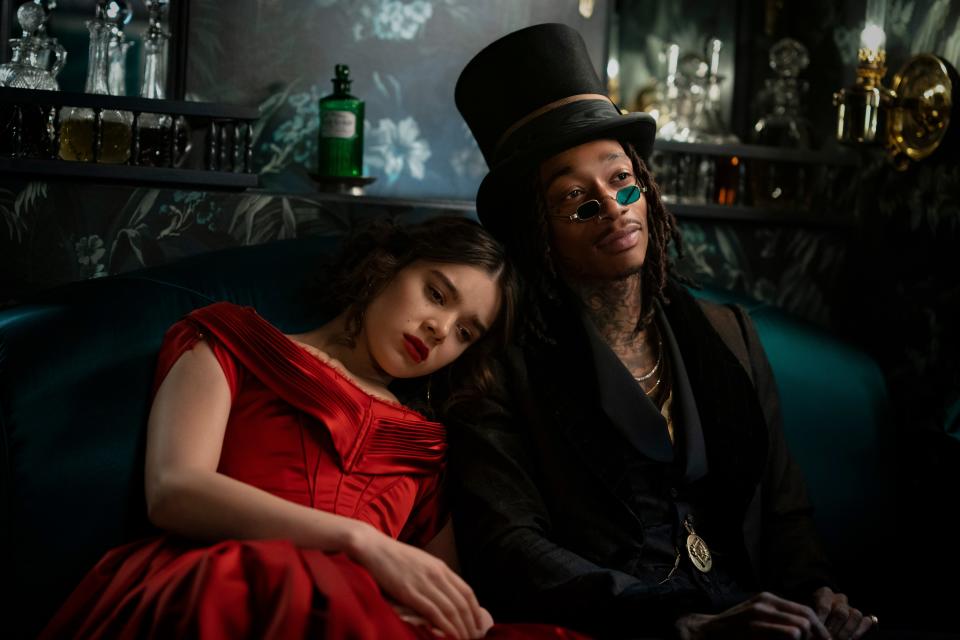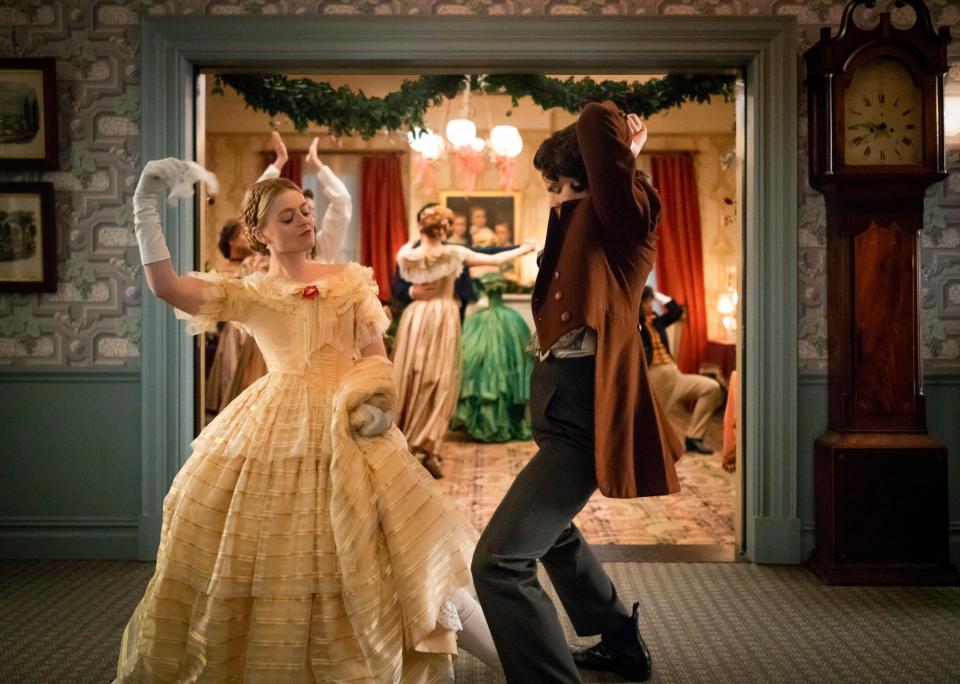Emily Dickinson Gets an Update for the Instagram Age in This New Series
In the past, pop culture has portrayed Emily Dickinson as something of a lonely spinster—a weird recluse who spent her days gardening and writing poems that wouldn’t be published until after her death in 1886. It’s true that Dickinson never married and preferred isolation in her later years, sure, but there’s so much more to her story. And Dickinson, now available for streaming on Apple TV+, is here to tell it.
“Emily Dickinson’s life was defined by these great ironies,” explains series creator Alena Smith. “She wrote nearly 2,000 poems, one of the greatest bodies of work ever written in the English language, and almost none of it was ever published or recognized while she lived. How she found the will to keep going as an artist and where that drive came from was so fascinating to me.”
Smith’s vision: Use the 1850s—a crucial period in Dickinson’s life—as a lens for today. The result? A fresh coming-of-age tale starring Hailee Steinfeld as the titular poet. While the setting is squarely in the 19th century, Dickinson draws parallels to the present through modern music and winks at current events. In episode one, for example, Dickinson imagines meeting Death (played by Wiz Khalifa, naturally) while “Bad Guy” by Billie Eilish blares in the background. In another, a period-appropriate dance ends with everyone twerking.

Using these 2019 updates, Smith explains, gives viewers a direct look into Dickinson’s inner life—this is a woman who’s at war with her rigid Victorian society. “If Emily Dickinson was an artist who was quite misunderstood in her own time, maybe we can understand her better in ours,” Smith says. “Just as Emily’s poems were breaking the rules and ahead of her time, this show is just trying to catch up with her in a way.” So Dickinson is not a literal transcription of Dickinson’s life—think of it more as a translation. Everything is rooted in fact, just with a 21st-century twist.
Steinfeld found another parallel between Dickinson and today’s millennial women. “In the show Emily goes back and forth about, ‘Do I even want to have an audience?’ Because all you want when you don’t have one is to have one. And then you start to actually get into the reality of having an audience, and you’re like, ‘This could be the worst possible thing ever.’ I think that has a lot to do with what millennials are dealing with today. You can seek attention and receive it [with social media], but once you get it and realize it’s not what you want, you kind of can’t turn back.”
Another part of Dickinson’s story that is better understood in today’s world: her sexuality. Many scholars believe the poet had romantic feelings for her best friend and sister-in-law, Susan Huntington Gilbert Dickinson. And so the series explores that love triangle between her, Sue (Ella Hunt), and Emily’s brother Austin (Adrian Blake Enscoe).
“I love that Emily truly talks about everything she’s feeling in her poetry, and she talked a lot about her sexuality,” Steinfeld says. “And though it was said she was in love with Sue—she wrote the majority of her poems to her or for her—she also had many male suitors. I guess she was rather fluid, but they didn’t necessarily have the terminology that we have now. But she and Sue have the most special and beautiful relationship. Emily feels like Sue truly sees her for who and what she is and loves that about her.”
Adds Hunt, “I was immediately attracted to the story of Emily and Sue and their relationship. We see a lot of stories exploring sexuality, but not exploring intimacy so much. The story of Emily and Sue is beautifully intimate because it’s both an affectionate friendship and a romance, and it was so wonderful to get to tell that story on screen.”

Even Dickinson’s relationship with her sister, Lavinia, gives a new perspective on the poet. We know from biographies that the two unwed sisters lived together in their childhood home their whole lives, but Dickinson explores how they got to that point. And when we meet Lavinia (Anna Baryshnikov) in the series, she is her sister’s complete opposite. “Lavinia is the Victorian equivalent of a girl who would be called basic,” Baryshnikov explains. “And I don’t think we’re kind to those women. I think their desires to fit in come from a genuine and heartfelt place, so I wanted Lavinia to feel like someone we knpw and love. She is the equivalent of someone who would adore a pumpkin spice latte, and there’s nothing wrong with that.” Over time, though, Lavinia’s desires change. “To succumb to those pressures would mean to erode a lot of the fundamental parts of her personality,” Baryshnikov says. “We see her learn that from Emily as we go along.”
The point is, there’s a lot we can all learn from Dickinson. And this series is a good place to start. “This is a character—this is a human—who is so unafraid of talking about what she feels and when she feels it and how she feels it,” Steinfeld says. “She is so unapologetically herself and fearless. I just love that she did whatever she had to do to write because that was the only thing that made her feel alive.”
Anna Moeslein is a senior editor at Glamour. Follow her on Instagram @annamoeslein.
Originally Appeared on Glamour

